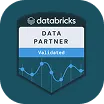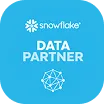Driving SEO and SEM Success with External Data


Search engines are a critical source of traffic for every business. Nearly 30% of all worldwide website traffic came from search engines. Being ranked in the top positions on the first page for any number of highly competitive search terms is not just valuable - it’s essential for business success.
To earn these high rankings, SEO and SEM campaign managers must grapple with ambiguous search engine algorithms, fierce competition, and ineffective data collection. The difficulty of gathering data from search engines means marketers are often left shooting in the dark, incapable of tracking changes in rankings, when they occurred, or what strategies competitors are pursuing.
External Data Platforms specialize in solving these data-gathering challenges and empower marketers to implement data-driven strategies by giving them access to the external data they need.
By using data gathering tools, marketers can better understand the keywords, titles, and descriptions that are producing meaningful ranking gains, measure changes in ranking over time to gain insight into the impact of their strategies, and monitor competitors continuously to keep abreast of emerging trends and competitive new search terms.
Data gathering platforms facilitate new tools for marketers that modernize the methods and strategies of SEO and SEM campaigns.
The benefits of search engine data
The goal of collecting search engine data is to build a factual, quantitative, real-time view of your SEO strategy’s performance across the variety of search terms that will drive the most traffic to your website. Insights from this data can then be integrated into your SEO and SEM strategies in order to improve organic rankings and target new search terms. The three main applications for search engine data include search term research, SEM optimization, and competitor analysis.
Search term research
Collecting SEO data allows you to monitor your ranking for the keywords and search terms you’ve chosen to target. Monitoring your rankings helps you understand how changes to your SEO strategy are impacting your rankings, and to be notified in real-time to changes in your positioning.
You can also discover new keywords by studying the titles, descriptions, and attributes of other listings and evaluating the keywords they use.
SEM optimization
SEM campaign optimization is all about finding the right keywords that will give you maximum value for your money while also driving the most traffic to your website. Collecting ad data from search results allows you to conduct thorough research on what ads are appearing for competitive keywords. This helps you to:
- Discover new keywords for SEM targeting
- Discover which keywords your competitors are targeting
- Gain insight into which ads are appearing the most and track their positions as it might indicate on their demand and suggest related keywords
Competitor analysis
Fundamentally, all SEO data collection boils down to marketing intelligence. By seeing what works for others, you can stay on top of SEO and SEM trends, gain insight into the high-priority search terms you need to target, and outperform competitors in key areas.
One critical advantage that collecting SEO data offers is ranking monitoring. By staying attuned to your rankings and your competitor's rankings, you can quickly identify what strategies are working and make adjustments rapidly.
Challenges when collecting search engine data
While collecting SEO data offers invaluable intelligence, there are a number of obstacles that make it challenging to gather.
Reliable Access
Ensuring smooth, consistent access to SERPs across the many requests necessary to gather and maintain updated search engine data can be very challenging. High-quality proxy networks are crucial in providing continuous access without compromising on performance or scalability.
Geographic Variance
SERP rankings vary widely depending on the location from which the query is performed. For example, your pages may have high ranks for certain search terms when queried from the US, but very low ranks for the same terms if the query is performed in France. The only way to discover these international rankings is to gather search engine data from potentially dozens of locations around the world.
Unstructured Data
SERPs are always changing. Listings are constantly added, removed, and reorganized, and search engines are continuously changing the lengths, content, and features associated with listings. For example, a search engine may display star ratings or directions in a query for restaurants, yet show statistics and live updates if queried for sports. Being able to structure this data into a format that is conducive for analysis necessitates tracking these changes and adapting to them as they occur.
External data platforms
Overcoming the aforementioned challenges is difficult and expensive to develop, and requires constant maintenance. External data platforms such as Nimble make the process effortless with a holistic solution that addresses the obstacles at every point in the data gathering process.
Nimble’s Data Platform seamlessly handles all of the complexity of accessing and retrieving data from any website or search engine. The data platform scales dynamically in accordance with your needs, so you can gather data for as many search terms, from as many search engines, as frequently as you like.
Using the data platform is a breeze, with an easy-to-use API that 100% guarantees you’ll get the data you requested, delivered directly to your preferred storage solution in a number of customizable formats.
The data platform integrates seamlessly with Nimble’s IP Infrastructure, an enterprise-grade proxy network. With a global variety of geolocations, our IP infrastructure enables you to gather data from any location on the planet, granting access to geo-limited or localized content.
By freeing you from worrying about the complexities of data gathering, Nimble’s data platform enables you to focus on actually using data to produce the insights you need to enhance your SEO and SEM strategies.
If you’d like to learn more about how Nimble can help you collect search engine data, drop us a line and we’ll walk you through what Nimble can do for you.
FAQ
Answers to frequently asked questions


.avif)



.avif)



.png)






